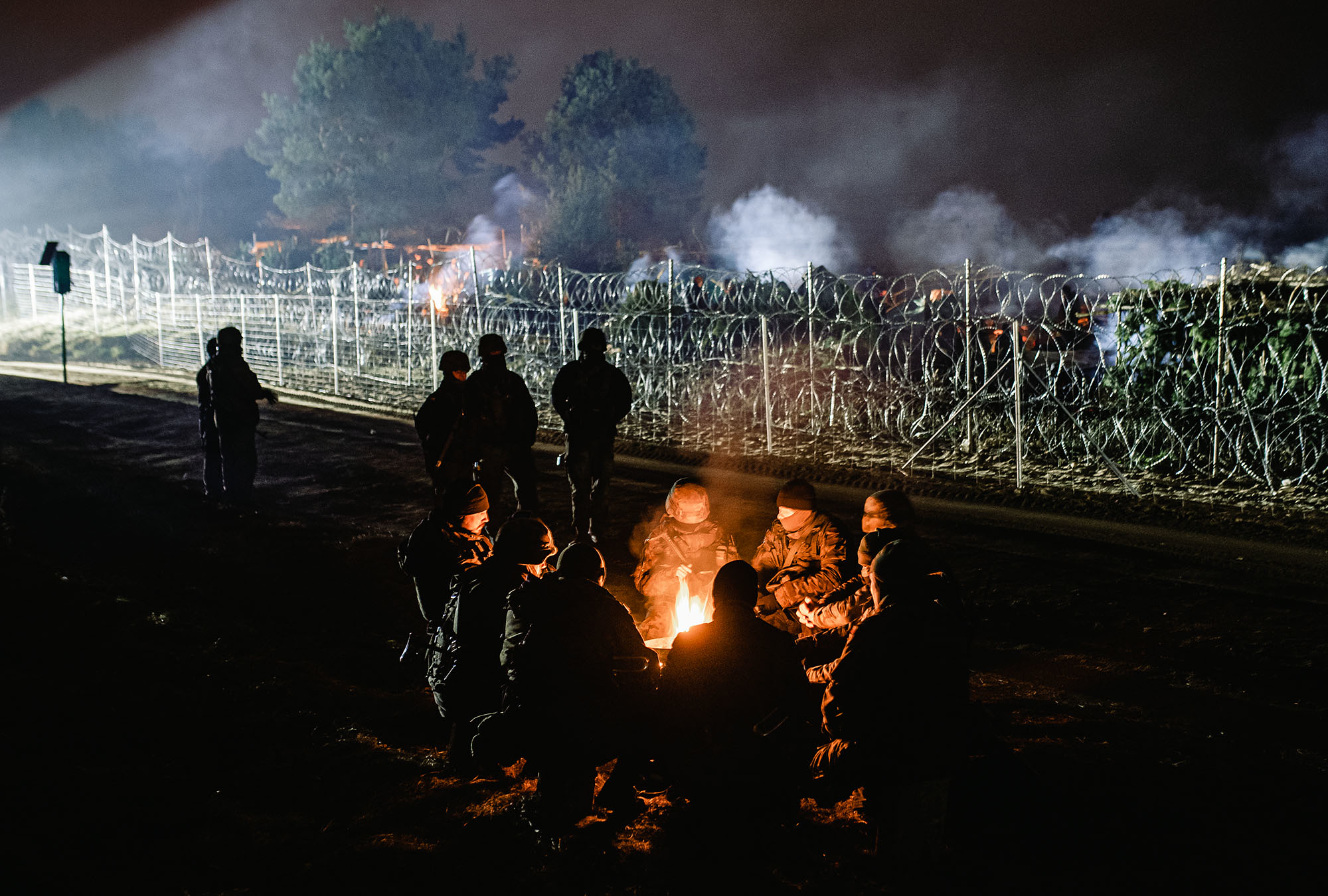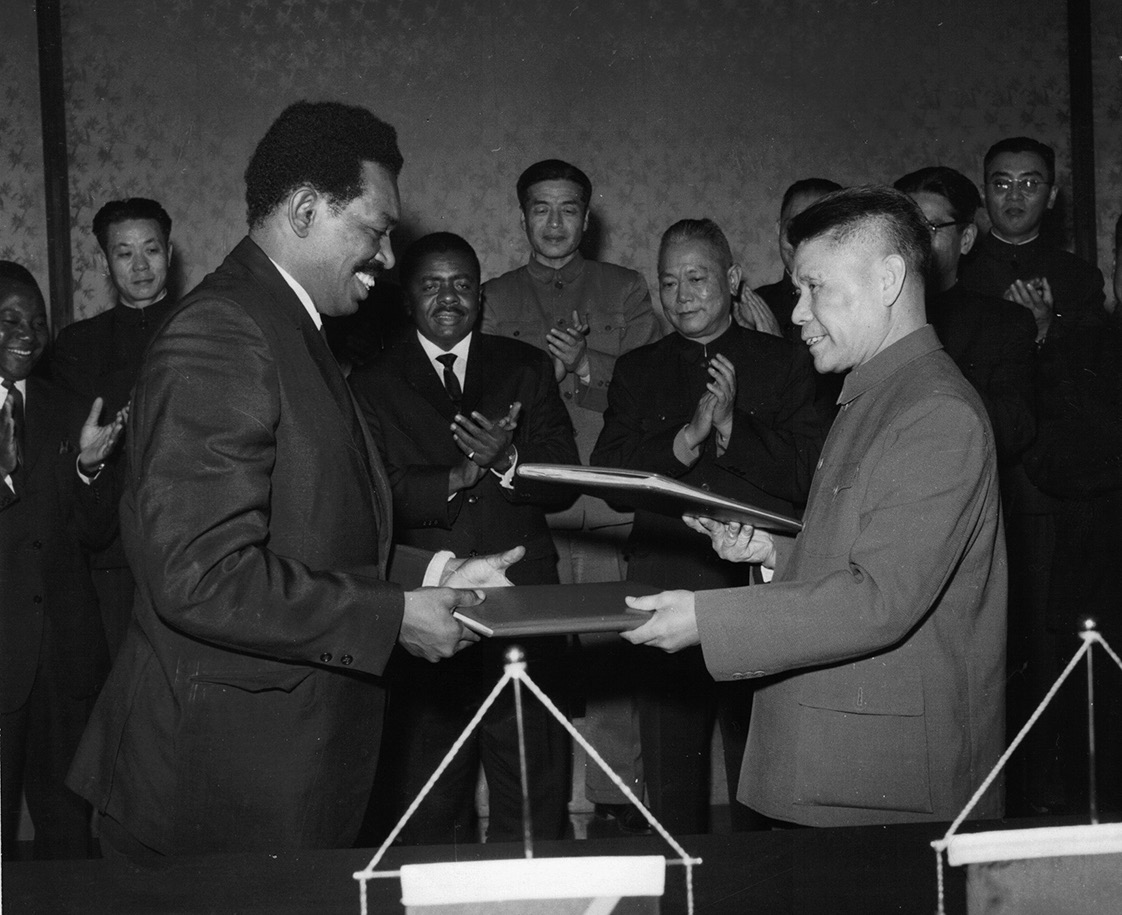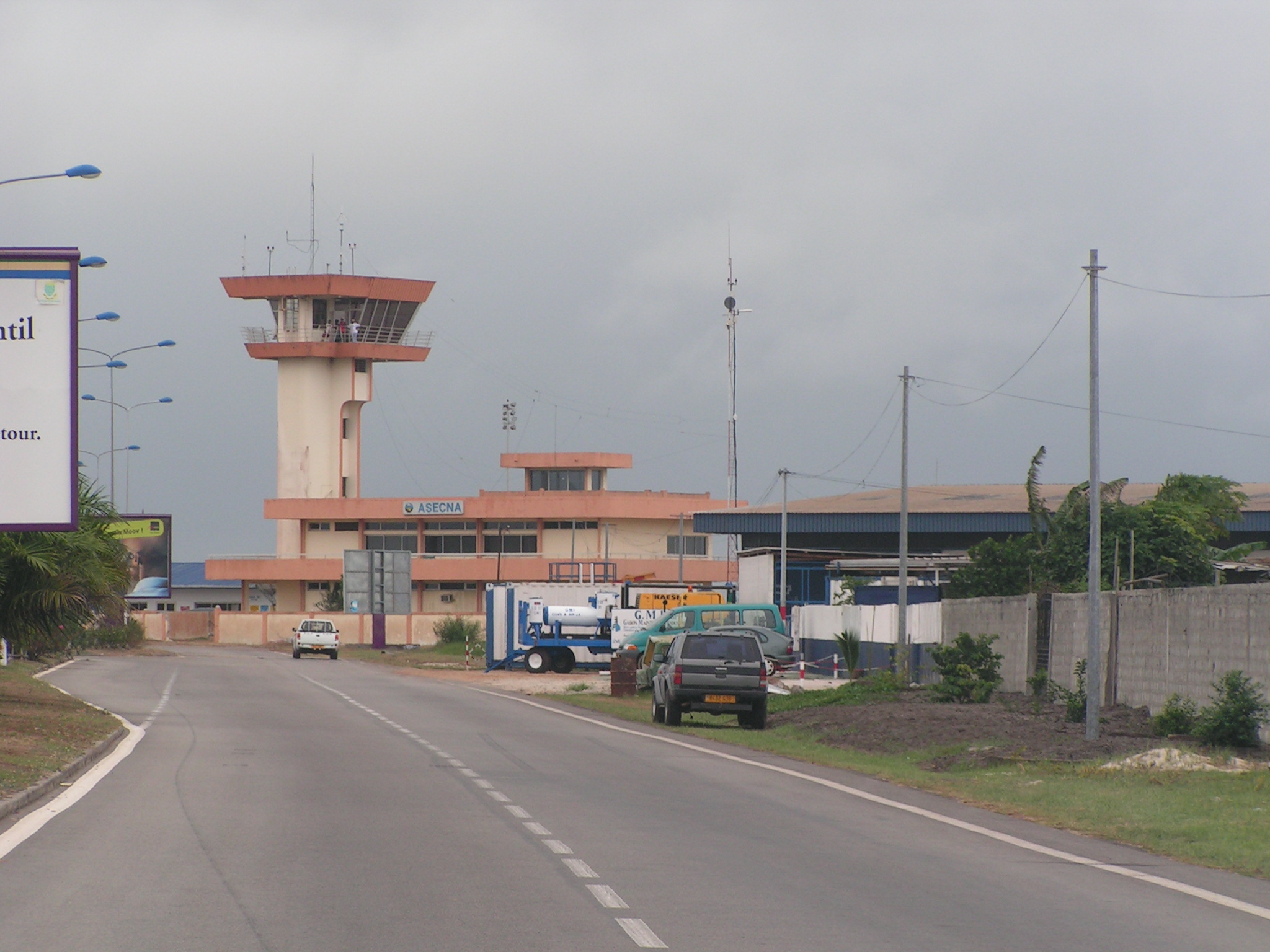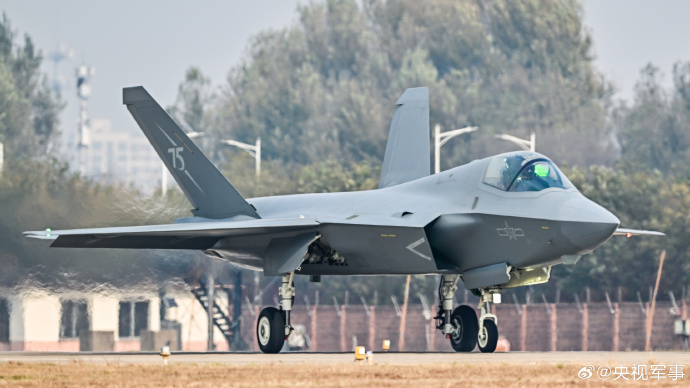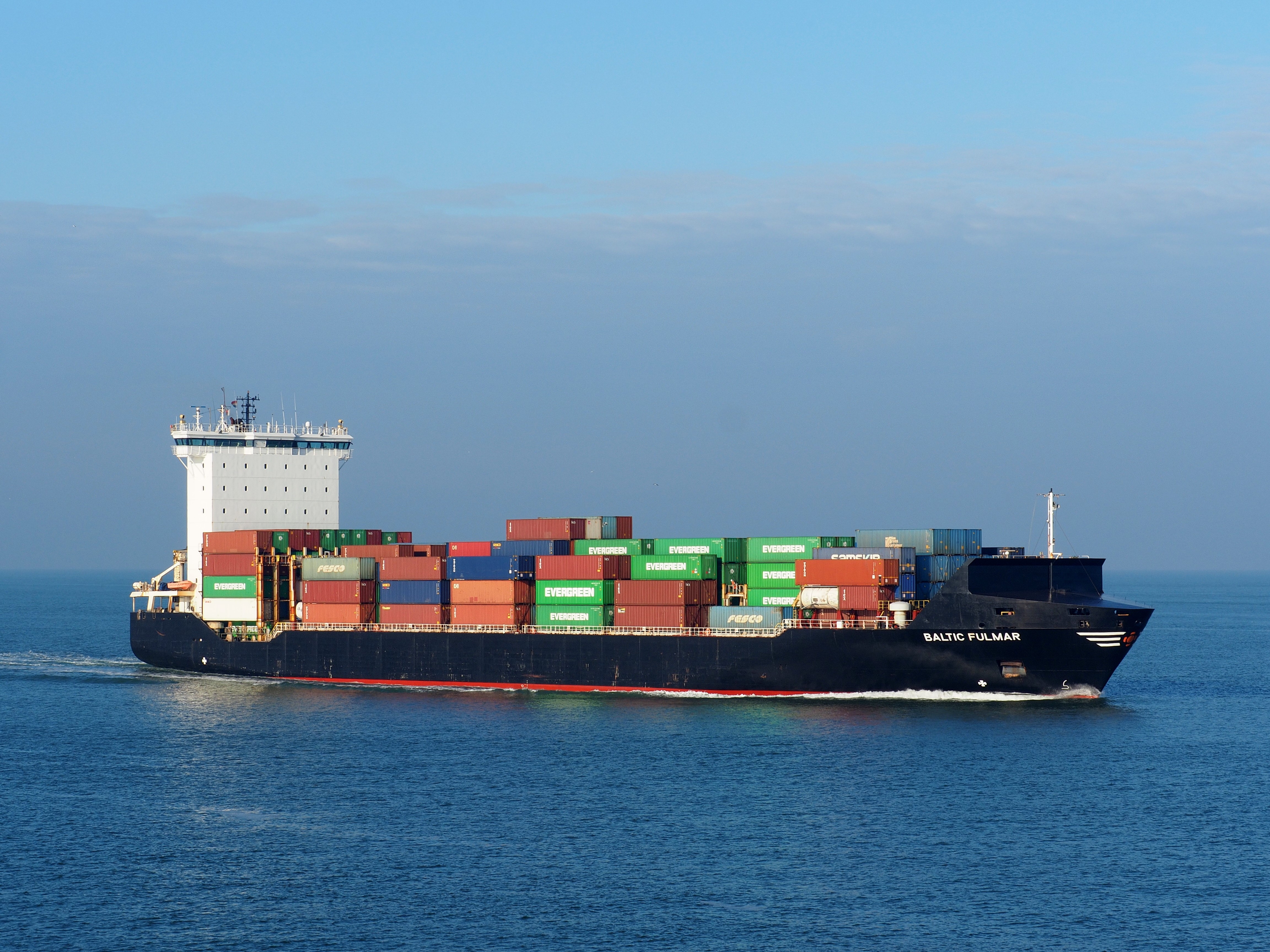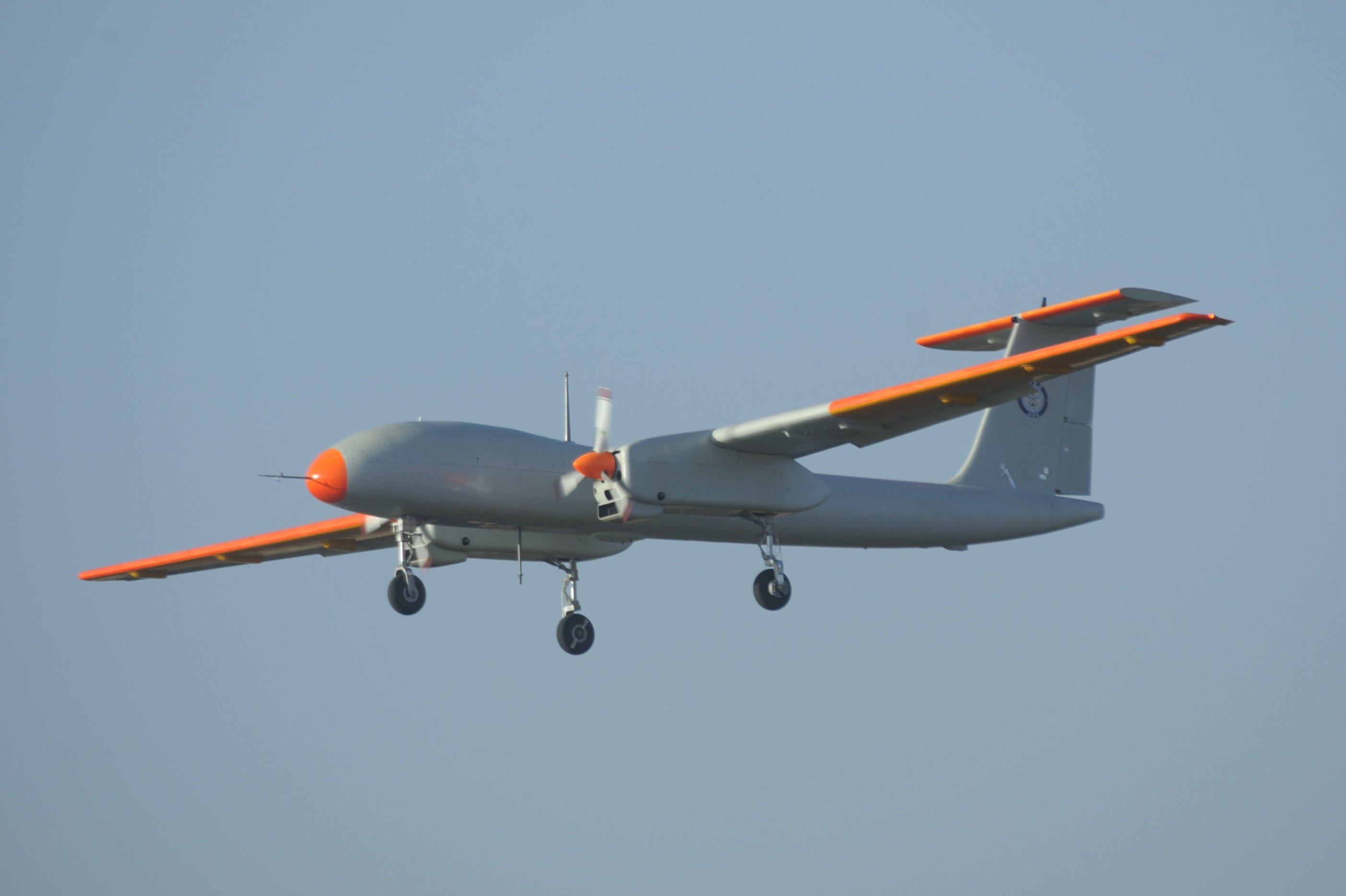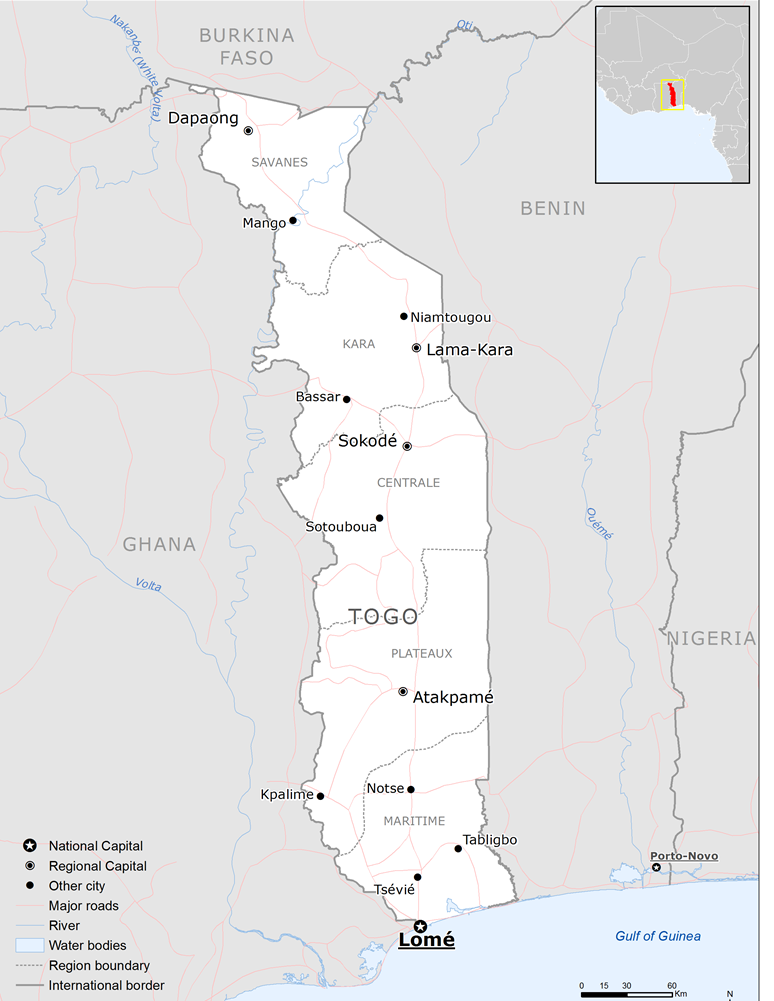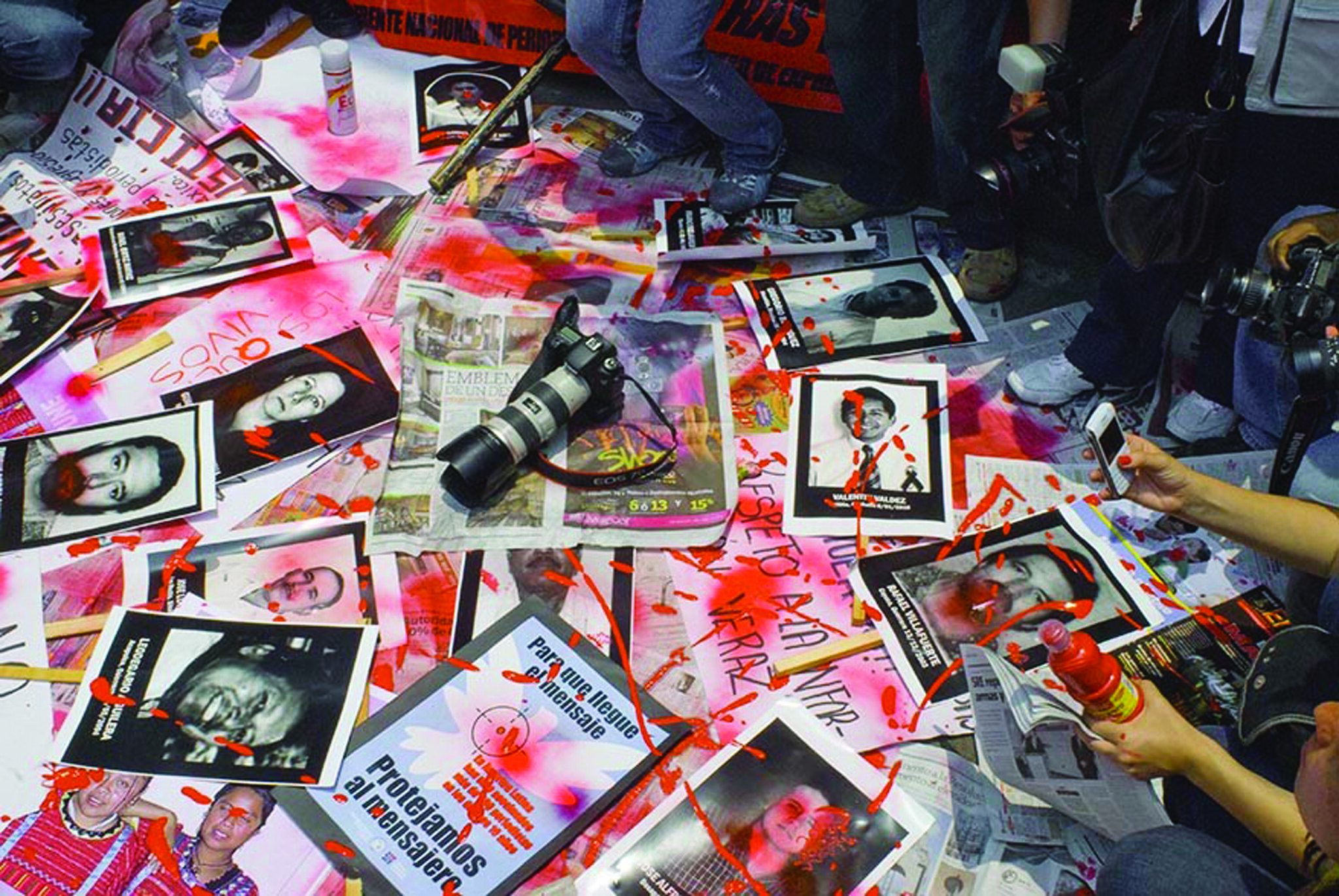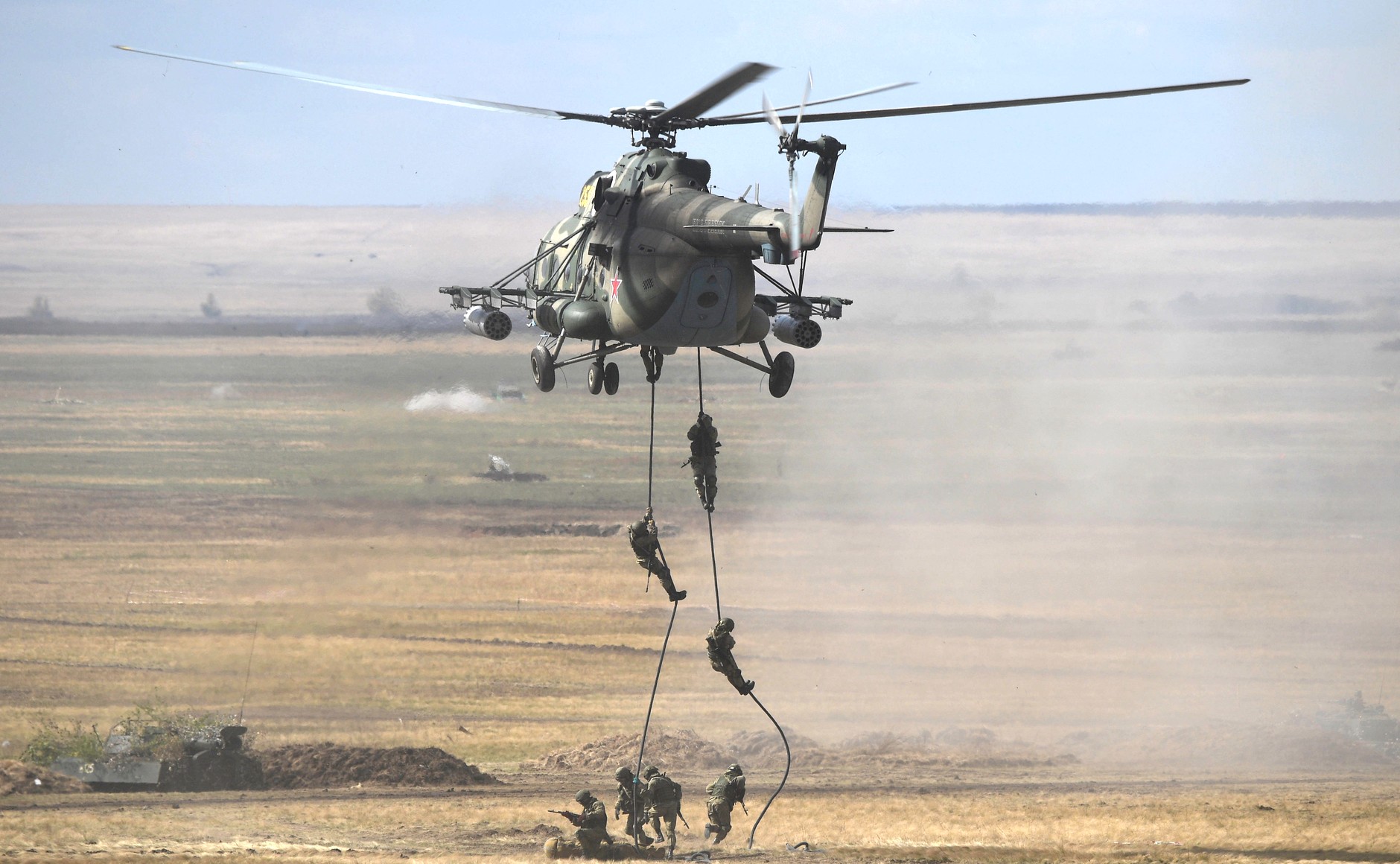
Russian soldiers fast-rope from helicopter during Centre 2019 strategic command-and-staff exercises.
“Russians are actively signing contracts with the Russian Defense Ministry for service in the special operation zone.”
In September, Russian President Vladimir Putin called for the “mobilization” of an additional 180,000 new service members. However, the meaning of “mobilization” appears to be a question of semantics: Russian media has reported that there is no talk in Moscow of a partial mobilization similar to the one conducted in the autumn of 2022, which led to tens of thousands of Russians fleeing the country. According to the first excerpted article from the pro-Kremlin Russian news source Izvestia, the press secretary for the Russian president, Dmitry Peskov, stated in November that “there is no talk of mobilization,” instead claiming that Russians are actively signing contracts for service in Ukraine.
Russia is mobilizing troops, not by traditional forced means, but financial inducements are now a key component of Russia’s recruitment tactics. According to the second excerpted article from the Russian news agency Interfax, a new debt law is the most recent incentive passed to encourage participation in the military. The new law allows up to 10 million rubles ($96,000) of outstanding debt facing collection, previously incurred by a recruit and/or his or her spouse, to be written off if a recruit joins the force.[i] Further, according to the third excerpted article from the Russian news tabloid Ragnum News Agency, on 25 November, Russia extended a one-time 400,000 ruble ($3,800) payment to those who sign a contract with the Russian Guard (Rosgvardiya) “for participation in the special military operation” in Ukraine.
The combination of financial incentives, which amounts to a windfall for many Russians, dead or alive, may well help the Russian armed forces continue to meet its recruiting goals, extending the war in Ukraine.[ii]
Sources:
“Песков сообщил об отсутствии планов по проведению мобилизации в России (Peskov reported no plans to conduct mobilization in Russia),” Izvestia (pro-Kremlin Russian news source), 23 November 2024. https://iz.ru/1795673/2024-11-23/peskov-soobshchil-ob-otsutstvii-planov-po-provedeniiu-mobilizatcii-v-rossii
Russia is not planning to conduct mobilization. This was announced on November 23 by the press secretary of the Russian president, Dmitry Peskov.
The official representative of the Kremlin added that at present, Russians are actively signing contracts with the Russian Defense Ministry for service in the special operation zone.
“There are a lot of these people — hundreds of people sign contracts every day and go to a special military operation,” Peskov noted.
Assembly point: Putin announced the completion of mobilization within two weeks
At the same time, the president emphasized that the conscription process needs to be improved.
Earlier, on October 27, when the agency asked whether there were enough volunteers and whether mobilization might be required, Peskov also answered that there was no talk of mobilization in Russia.
Before that, in May, Peskov stated that there was no need for mobilization in Russia, commenting on an article in the Financial Times (FT) that the country was actively recruiting volunteer contract soldiers.
“Правительство доработало программу списания кредитов военнослужащих (The government has finalized the program for writing off military personnel’s loans),” Interfax (Russian news agency), 15 November 2024. https://www.interfax.ru/russia/992965
The government proposes to write off overdue loans of up to 10 million rubles for which judicial collection has already begun for mobilized personnel, conscripts (except for cadets) and military contract soldiers during military service to perform the tasks of the Air Defense Forces, from December 1, 2024, follows from the amendments submitted to the State Duma.
We are talking about writing off obligations under loan agreements that were concluded before December 1, 2024 and for which a court order on debt collection has already entered into legal force or enforcement proceedings have been initiated. Up to 10 million rubles can be written off for a certain category of citizens – these are conscripts for military service upon mobilization; conscripted military personnel (except for cadets of military schools or universities); other citizens who are not undergoing military service, but who concluded a contract for military service for a period of one year or more to perform the tasks of a special military operation no earlier than December 1, 2024. The write-off also applies to spouses of this category of citizens.
“The obligations of a citizen called up for military service upon mobilization into the Armed Forces of the Russian Federation, a serviceman who has served in the Armed Forces of the Russian Federation by conscription (except for a serviceman holding a military position as a cadet in a military professional educational organization, a military educational organization of higher education under the jurisdiction of the Ministry of Defense of the Russian Federation), another citizen who is not serving in the military, who concluded no earlier than December 1, 2024, a contract for military service in the Armed Forces of the Russian Federation for a period of one year or more to perform the tasks of a special military operation, and (or) his (her) spouse, arising from a loan agreement, if before December 1, 2024 a judicial act on the collection of debt on these obligations entered into legal force and (or) in order to fulfill such obligations, a writ of execution was issued to a bank or other credit organization and (or) enforcement proceedings were initiated based on the applications of the said organizations (the writ of execution was presented for execution), shall be terminated in parts, not exceeding in total 10 million rubles, from the date of conclusion of the said contract,” the text of the amendment says.
“Путин распространил на Росгвардию разовую выплату в 400 тыс. Рублей (Putin Extends One-Time Payment of 400,000 Rubles to the Russian Guard),” Regnum News Agency (Russian tabloid), 25 November 2024. https://regnum.ru/news/3931489?utm_source=iz&utm_campaign=vidjet&utm_medium=8&utm_content=3931489
The Russian Guard has been extended a one-time payment of ₽400,000 upon signing a contract with the Ministry of Defense.
Russian President Vladimir Putin extended the provision on a one-time payment of 400,000 rubles to the Russian Guard upon signing a contract for participation in a special military operation. The corresponding decree was published on November 25.
“This decree shall enter into force on the date of its signing and shall apply to legal relations that arose from August 1, 2024,” the document says.
Putin introduced a payment of 400 thousand rubles for participants in the special operation who signed a contract with the Ministry of Defense for a period of one year or more in August. Foreign citizens who decided to go to the combat zone also received the right to it.
The press secretary of the Russian president Dmitry Peskov explained that the payment is aimed at supporting the fighters of the special operation. He emphasized that this does not mean a change in the goals of the SVO.
Notes:
[i] In April 2024, the Russian government clarified its position vis-a-vie Russian banks regarding debt and interest reduction for those serving in Ukraine. As per when the article was written, the price tag for the debt forgiveness would be in the neighborhood of 11 billion rubles, half of which will be paid by the banks. The other half would be paid for by the government, adding an additional 5-6 billion rubles to defense expenditures. See: “Принят закон о компенсации банкам 50% потерь от списания процентов по кредитам военных (A law has been adopted to compensate banks for 50% of losses from writing off interest on military loans),” Interfax (Russian news agency), 2 April 2024. https://www.interfax.ru/russia/953642
[ii] For reporting on the positive economic impact of financial payment to family members of deceased service members, see: Georgi Kantchev and Matthew Luxmoore, “The ‘Deathonomics’ Powering Russia’s War Machine,” The Wall Street Journal, 13 November 2024. https://www.wsj.com/world/russia/russia-ukraine-war-military-death-pay-6cfe936e?mod=world_lead_pos3
Image Information:
Image: Russian soldiers fast-rope from helicopter during Centre 2019 strategic command-and-staff exercises.
Source: Russian Office of the President, http://en.kremlin.ru/events/president/news/61584
Attribution: Public Domain

